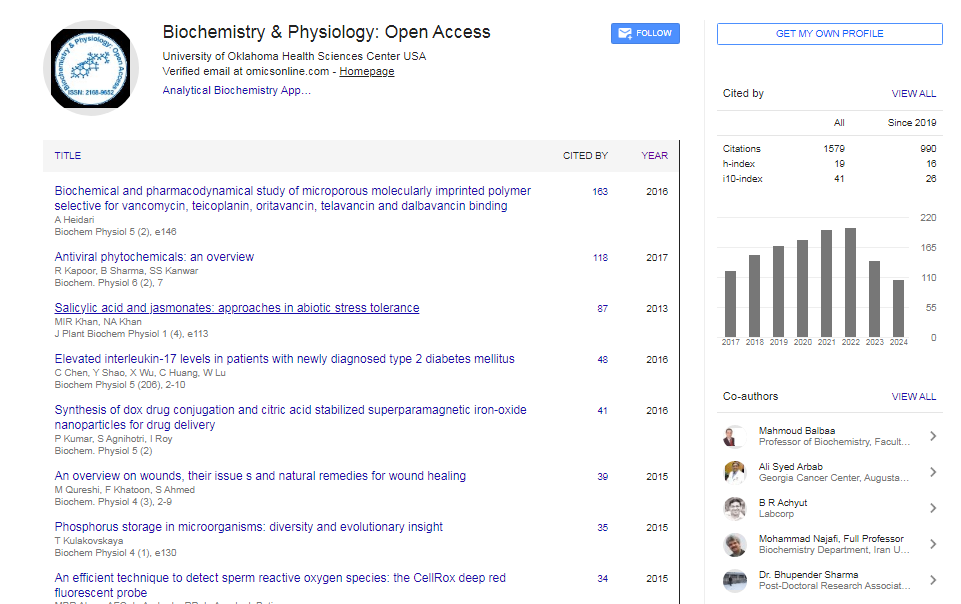Research Article
Limitation of Improvement in Germination by Osmopriming of Differentially Aged Non-Orthodox Neem (Azadirachta indica) Seeds
Vimal Kumar Pandey1,2* and Atanu Kumar Pati11School of Life Sciences, Pt. Ravishankar Shukla University, Raipur, Chhattisgarh, India
2National Institute of Plant Genome Research (NIPGR), Aruna Asaf Ali Marg, New Delhi, India
- *Corresponding Author:
- Vimal Kumar Pandey
School of Life Sciences, Pt. Ravishankar Shukla University
Raipur, Chhattisgarh 492010, India
Tel: +91- 9990566447
E-mail: vimal.bt04@gmail.com
Received date: April 14, 2017; Accepted date: May 20, 2017; Published date: May 27, 2017
Citation: Pandey VK, Pati AK (2017) Limitation of Improvement in Germination by Osmopriming of Differentially Aged Non-Orthodox Neem (Azadirachta indica) Seeds. Biochem Physiol 6:217. doi:10.4172/2168-9652.1000217
Copyright: © 2017 Pandey VK, et al. This is an open-access article distributed under the terms of the Creative Commons Attribution License, which permits unrestricted use, distribution, and reproduction in any medium, provided the original author and source are credited.
Abstract
This work involves physiological and biochemical features of seed ageing gauged from seed viability and vigour over the period of storage. Both conventional storage (natural ageing) and controlled deterioration (accelerated ageing) are resulted in loss of germination capacity and vigour as well as poor seedling establishment. Present findings indicate that both natural and accelerated ageing sustain similar pattern, except their mortality curve. In natural ageing, prior to entering sigmoidal type decline a period of relative stability exists; whereas in accelerated aging, such relative stability is absent. It is also observed that rate- controlling process of ageing (natural ageing slow whereas accelerated ageing fast) was dependent upon moisture content and temperature. These physical factors have negative linear correlation with seed viability. Membrane integrity and lipid peroxidation are associated with seed ageing, however peroxidation does not hold exact with accelerated ageing. Additionally, these aged seeds were exposed to osmopriming (controlled hydration) resulted in improved germination characterized by faster and uniform germination. For the first time, it was strongly established that osmopriming significantly improves the seed germination (about 12- 17%) until a critical level (up to 50% germination) during the ageing and thereafter priming does not support the process of improvement of germination. Such improvement prediction is important for physiologists and seed technologists to recruitment the degree of priming.

 Spanish
Spanish  Chinese
Chinese  Russian
Russian  German
German  French
French  Japanese
Japanese  Portuguese
Portuguese  Hindi
Hindi 